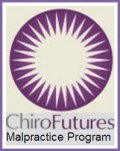American Heart Association Releases Stroke Paper

The American Heart Association and the American Stroke Association recently released a paper reviewing the issues related to stroke and dissection. Although the papers authors conclude that current biomechanical evidence is insufficient to establish the claim that manipulation causes dissection they recommend that patients should be informed of the statistical association between dissection and manipulation prior to undergoing manipulation of the cervical spine.
According to the ChiroFutures Malpractice Program's CEO and Co-Founder, Matthew McCoy DC, MPH: “There is nothing new in this paper from the American Heart Association and in many ways it perpetuates the same old myths and reveals a basic ignorance regarding epidemiology.”
According to McCoy, the issues of causation versus association are generally misunderstood by not only lay persons, but even those with training in health care. McCoy stated “The bottom line is that the research shows the same association between dissection and stroke whether you see a chiropractor or a medical physician.”
This is a timing issue and in epidemiology is known as temporality. This indicates that the providers are not causing the dissections but instead the patients are entering the doctors’ office with a dissection already in progress and it’s the signs and symptoms of neck pain and headache from the dissection that brought them there in the first place.
Given these facts, all health care providers should be cognizant of the risks related to stroke and dissection and if a patient presents with such symptoms an appropriate referral should be made.
“The chiropractic profession should be outraged that the ACA had a representative on this panel and they refuse to reveal his identity” argued McCoy.
In Long’s biography he brags about his work as an expert witness testifying against chiropractors.
Yet, in the AHA paper he claims he has no conflicts of interest.
“This fact, in and of itself, discredits the paper and Dr. Long” stated McCoy. "One would think that the American Heart Association and the American Stroke Association would know better than to use a self described plaintiff’s expert as an author and not check to see if his disclosures were accurate.”
Regarding the AHA recommendation that patients should be informed of the statistical association between dissection and manipulation prior to undergoing manipulation of the cervical spine, Anthony Carrino DC, FICPA, President and Co-Founder of ChiroFutures had this to say:
“We encourage and support a shared decision making process between doctors and patients regarding health needs. As a part of that process patients have a right to be informed about the state of their health as well as the risks, benefits and alternatives related to care. Chiropractors are thoroughly trained to recognize when a patient’s symptoms are from an ominous cause such as dissection and are well trained to make the appropriate referral to a medical specialist.”
Patients and doctors must make this decision based upon appropriate information. Since there is no human experimental evidence that chiropractic adjustments or neck manipulations are causally related to strokes, suggesting that such a risk exists is poor public health practice.
American Heart Association Paper
Blogs
- The Chiropractic Cartel: A Look Back at Bias in Accreditation and its Imact on Today's Profession
- Inside Montana's Chiropractic Monopoly: ACA & MCA's Brazen Board Takeover
- Concerns Grow About Control of the NY State Chiropractic Board by the ACA - Use of X-ray in NY Under Threat
- Reproductive Health Information and Chiropractic Care: Navigating New Privacy Regulations
- Navigating Substance Use Disorder (SUD) Consent: What Chiropractors Need to Know













